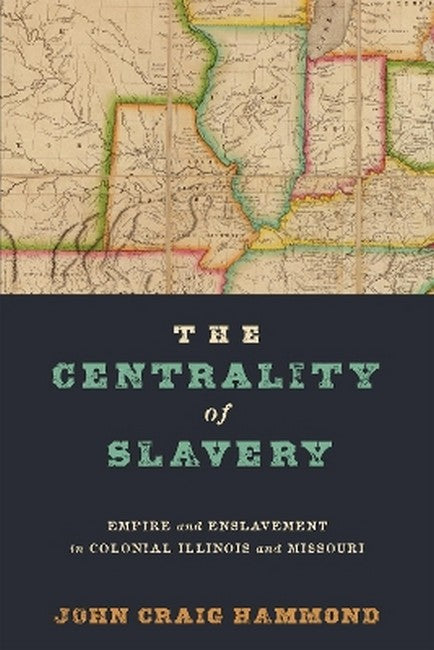John Craig Hammond is Associate Professor of History at Penn State University, New Kensington.
Request Academic Copy
Please copy the ISBN for submitting review copy form
Description
"John Craig Hammond has given us a much-needed single-volume history of empire, enslavement, and emancipation in what eventually became Illinois and Missouri. In a narrative that is, at turns, both sprawling and intimate, he reveals how and why two places connected by North America's greatest river diverged in the century leading up to the Missouri Crisis and demonstrates the enormous challenges the region's various imperial actors--the French, Spanish, British, and Americans--faced in implementing slavery and freedom on the ground. Imperial forces might have set the agenda, but the people of the region often had their own ideas and made ruling the middle Mississippi Valley no easy feat."-- "Anne Twitty, Stanford University" "Readers of his important essays know that John Craig Hammond writes history that is notably broad yet always grounded. At the 'crossroads of imperial North America, ' he discerns a story of slavery's transformations that is imperial but no less contested for being more than sectional or national. Precise and eloquent, synthetic yet pointed and original, The Centrality of Slavery is a leading entry in the renaissance of scholarship on slavery and its politics that is reshaping early American studies."-- "David Waldstreicher, City University of New York" "Through John Craig Hammond's indefatigable research and incisive analysis, The Centrality of Slavery offers sparkling contributions to a range of historiographies, headlined by those on slavery, politics, and empire. Hammond smartly deploys the Middle Mississippi Valley as his microcosm. That not only lays bare many of the long-growing roots of the Missouri Crises of 1819-1821, but also illuminates the multifarious and contentious interactions between imperialism and enslavement in the early modern world. Readers will be repaid handsomely for engaging with this complex narrative of the consequences of the choices debated and made by a broad cast of characters."-- "Matthew Mason, Brigham Young University"

